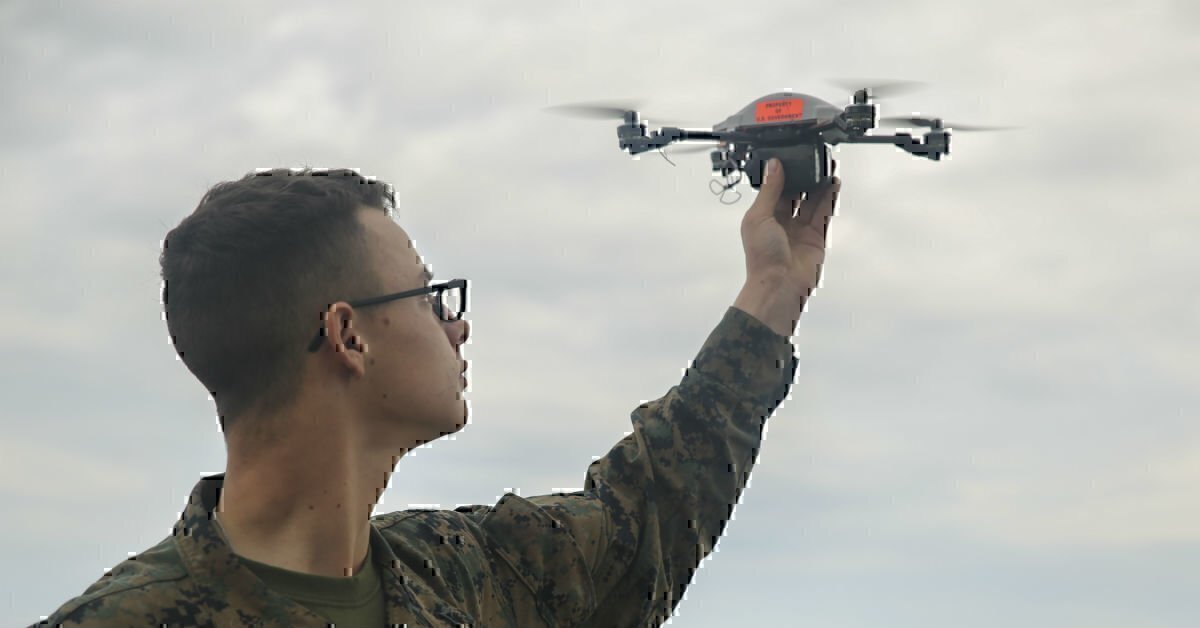Founder and CEO of the artificial intelligence company SparkCognition, Amir Husain, signed the letter but insists that he is against any ban or restrictions that would stifle progress and innovation. He pointed out that the campaign was organized by professor Toby Walsh of the University of New South Wales in Australia, and was meant to highlight the “potential dangers of autonomous weapons absent an international debate on these issues.”
The industry wants a healthy debate on the benefits and risks of AI and autonomy, Amir told RealClearDefense in a statement. But a blanket ban is “unworkable and unenforceable.” Scientific progress is inevitable, “and for me that is not frightening,” he added. “I believe the solution — as much as one exists at this stage — is to redouble our investment in the development of safe, explainable, and transparent AI technologies.”
Wendy Anderson, general manager of SparkCognition’s defense business, said that to suggest a ban or even tight restrictions on the development of any technology is a “slippery slope” and would put the United States at a competitive disadvantage, as other countries will continue to pursue the technology. “We cannot afford to fall behind,” said Anderson. “Banning or restricting its development is not the answer. Having honest, in-depth discussions about how we create, develop, and deploy the technology is.”

USAF photo by Staff Sgt. Brian Ferguson
August Cole, a senior fellow at the Atlantic Council and writer at the consulting firm Avascent, said the concerns raised by tech leaders on autonomous weapons are valid, but a ban is unrealistic. “Given the proliferation of civilian machine learning and autonomy advances in everything from cars to finance to social media, a prohibition won’t work,” he said.
Setting limits on technology ultimately would hurt the military, which depends on commercial innovations, said Cole. “What needs to develop is an international legal, moral, and ethical framework. … But given the unrelenting speed of commercial breakthroughs in AI, robotics, and machine learning, this may be a taller order than asking for an outright ban on autonomous weapons.”
But while advances in commercial technology have benefited the military, analysts fear that the Pentagon has not fully grasped the risks of unfettered AI and the possibility that machines could become uncontrollable.
“AI is not just another technology,” said Andy Ilachinski, principal research scientist at the Center for Naval Analyses. He authored a recent CNA study, “AI, Robots, and Swarms: Issues, Questions, and Recommended Studies.”

USMC photo by Sgt. Lucas Hopkins
Defense has to be concerned about the implications of this debate, he said in an interview. AI is transforming the world “to the level of a Guttenberg press, to the level of the Internet,” he said. “This is a culture-shifting technology. And DoD is just a small part of that.”
Another troubling reality is that the Pentagon has yet to settle on the definition of autonomous weapons. In 2012, the Department of Defense published an instruction manual on the use of autonomous weapons. That 5-year-old document is the only existing policy on the books on how the US military uses these systems, Ilachinski said. According to that manual, a weapon is autonomous if “once activated, it can select and engage targets without further intervention by a human.”
He noted that the Defense Science Board, a Pentagon advisory panel, published two studies on the subject in 2012 and 2016 but provided “no good definition of autonomy or AI in either of them.” These are the Pentagon’s top experts and “they can’t even get it straight.”

USAF photo by Master Sgt. Dennis J. Henry Jr.
Something about Musk’s warning strikes a chord with scientists that truly understand AI, Ilachinski observed. When Google’s Deepmind created a computer program in 2015 that beat the world’s Go champion, it was a landmark achievement for AI but also brought the realization that these algorithms truly have minds of their own. “This is an issue of great concern for DoD.”
There are areas within AI that scientists are still trying to wrap their heads around. In advanced systems like Deepmind’s AlphaGo, “you can’t reverse engineer why a certain behavior occurred,” Ilachinski said. “It is important for DoD to recognize that they may not able to understand completely why the system is doing what it’s doing.”
One reason to take Musk’s warning seriously is that much is still unknown about what happens within the brains of these AI systems once they are trained, said Ilachinski. “You may not be able to predict the overall behavior of the system,” he said. “So in that sense I share the angst that people like Elon Musk feel.”
On the other hand, it is too late to put the genie back in the bottle, Ilachinski added. The United States can’t let up because countries like China already are working to become the dominant power in AI. Further, the Pentagon has to worry that enemies will exploit AI in ways that can’t yet be imagined. Anyone can buy a couple of drones for less than a thousand dollars, go to the MIT or Harvard website, learn about AI, download snippets of code and implant them in the drones, he said. A swarm of smart drones is something “would have a hard time countering because we are not expecting it. It’s very cheap and easy to do.”
This article was written by Sandra Erwin and appeared on Scout.com










